Muslim Modernism and the Problem of Modern Science
Synopsis
Present work is a critical appraisal of Muslim modernist appropriation of modern science, largely from perennialist traditionalist perspective. It argues against the current usual thesis amongst most Muslims that modern science is compatible with Islam, and that latter provided inspiration for it and that one could graft modern scientific enterprise to traditional Islam. Certain postmodernist insights are juxtaposed with perennialist approach in our critique of modernist thesis which is basically the thesis that Islam and modern science are compatible and that modern science could be relevant and must be appropriated in reinterpretation and reconstruction of traditional religious thought in Islam. Foregrounding the perennialist critique of modern science for its commitment to reductionist, naturalist, demythologizing, evolutionist, empiricist, rationalist methodology and world-view it critiques most forms of modernist appropriations of Islam and the pleas for reinterpretation / reconstruction of traditional religious thought in Islam in the light of modern scientific developments. Rejecting the metanarrative of modern science and its epistemic chauvinism on postmodern and perennialist grounds, it argues for return to traditional metaphysical perspective as it highlights the divergence between epistemic and cognitive universes of traditional Islam and modern science. Iqbal is discussed as representative modernist voice and in the context of other modernist voices. His credentials as representative of consistent modernist approach to problem of modern science are fore grounded. Conceptual confusions and operational anomalies of modernist approach are highlighted. Present work is also a contribution to the debate on Islamization of knowledge also. It is primarily a contribution to perennialist approach to modernism and modern science. Certain postmodernist insights are juxtaposed with perennialist approach our critique of modernist thesis which is basically the thesis that Islam and modern science are compatible and that modern science could be relevant and must be appropriated in reinterpretation and reconstruction of traditional religious thought in Islam. Certain popular modern works on Islam and science also come under critical scrutiny. Works of Harun Yaha, Zakir Naik, Fatehullah Khan, Wahidudin Khan, Abdul Bari Nadvi, Ziaudin Sardar, Maurice Boccaile, I.R. Faruqi and others provide a context to present work and have been discussed vis-a-vis Iqbal. Present work opens new vistas on Iqbal studies and more specifically on Reconstruction studies.
Read more
43.20
38.88
$
48.00 $
Free delivery Wolrdwidе in 10-18 days
Ships in 1-2 days from New Delhi
Membership for 1 Year $35.00
Get it now and save 10%
Get it now and save 10%
BECOME A MEMBER
Books by the same author

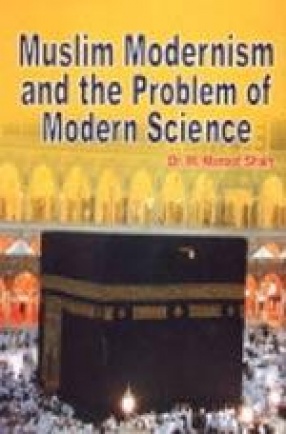
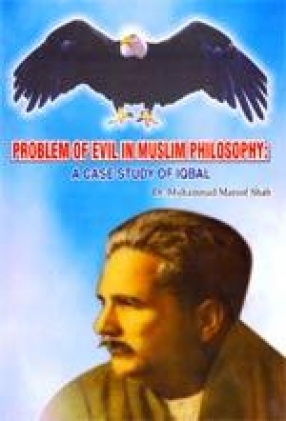
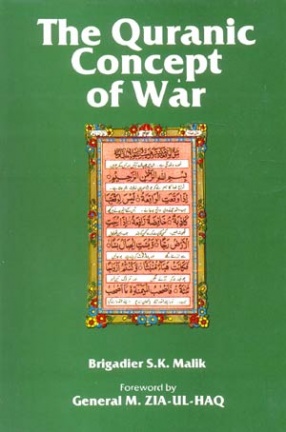
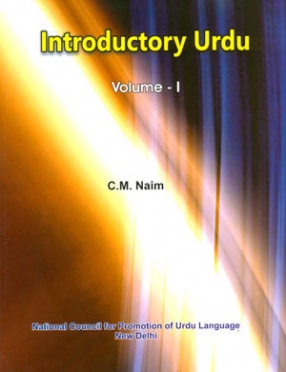

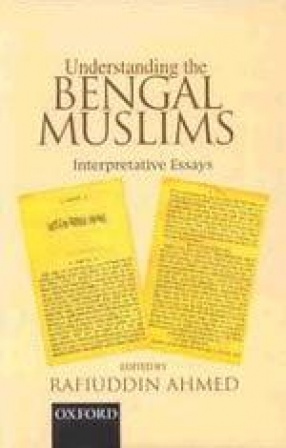

Dr. M. Maroof’s Shah’s insightful and provocative study Muslim Modernism and the Problem of Modern Science published just after his first book Problem of Evil in Muslim Philosophy: A Case Study of Iqbal is a worthy addition to the Muslim theological and philosophical studies in general and the Iqbalian studies in particular. The book published only recently (2007) by Indian Publishers’ & Distributors, Delhi (distributed in Kashmir by Amicus Books), consists of 13 chapters, covering about 320 pages. Its apt title tells us about the subject and scope of the book and should catch the eyes of all those interested in Islam and the challenge of modern scientific and philosophical thought to it and Muslim modernist response to the same. The title rightly puts finger at modern science’s problematic stance vis-à -vis traditional religious/metaphysical worldview of Islam and modernist’s complicity with modern scientific methodological and philosophical premises. The author sails smoothly in quite diverse fields and his amazing scholarship that leaves no discipline of knowledge whether religion, metaphysics, literature both Western and Eastern, mysticism and even science and psychology, outside its purview displayed in this dense and richly allusive book deserves our note. His erudition is sometimes quite overwhelming. Even the best informed of the audience may feel certain passages and allusions too demanding or dense as the author draws upon very complex and obscure thinkers such as Schuon. The book under review deals with one of the most important concerns of modern Islam, namely, the question of modern science and its appropriation in traditional Islamic worldview. It is the first book length critique of Muslim modernism from the traditional Islamic and perennialists perspectives. It argues against the current usual thesis amongst most Muslims that modern science is compatible with Islam, and that the latter provided inspiration for it and that one could graft modern scientific enterprise to traditional Islam. Certain postmodernist insights are juxtaposed with the perennialist approach in his critique of modernist thesis which is basically the thesis that Islam and modern science are compatible and that modern science could be relevant and must be appropriated in reinterpretation and reconstruction of traditional religious thought in Islam. Foregrounding the perennialist critique of modern science it critiques most forms of modernist appropriations of Islam and the pleas for reconstruction of traditional religious thought in Islam in the light of modern scientific developments. ( Ijtihad in legal matters is of course not unwarranted, the thesis of “The Principle of Movement in Islam†continues to hold. The only debatable point is whether modern scientific developments can have any say in discrediting age old traditional symbolic language of scriptures. Theology itself in Islam was affected by contemporary philosophical thought and logic and is not therefore sacrosanct. It is the metaphysical domain that is independent of any age, any scientific development.) Rejecting modern science’s epistemic chauvinism on postmodern and perennialist grounds, it argues for return to the traditional metaphysical perspective as it highlights the divergence between epistemic and cognitive universes of traditional Islam and modern science. Iqbal is discussed as a representative modernist voice and in the context of other modernist voices. Conceptual confusions and unorthodox character of modernist approach are highlighted. It is an important contribution in application of the perennialist approach to Muslim modernism and its appropriation of modern science. It reorients the debate on Islamization of knowledge by juxtaposing otherwise divergent approaches of [postmodernism and perennialism). Certain popular modern works on Islam and Science have been scrutinized from the perennialist viewpoint. The works of Harun Yaha, Zakir Naik, Fatehullah Khan, Wahidudin Khan, Abdul Bari Nadvi, Ziaudin Sardar, Maurice Buccaille, I.R. Faruqi and others provide a context to the present work and have been discussed vis-à -vis Iqbal. The present work, as the author rightly claims, opens new vistas on Iqbal studies and more specifically on Reconstruction studies. Muslim modernist approach to the question of modern science which assumes overall compatibility of Islam and modern scientific worldview is here subject to a searching critique. The author critiques demythologizing, rationalist (as distinguished from intellectualist), reductionist, evolutionist, secularist orientation of modern scientific thought and points out that Muslim modernists have been influenced, in varying degrees, by all or some of these elements. The book starts by an analysis of major varieties of modernist response to the problem of appropriation of modern science in Islam. It highlights Iqbal’s response through a perceptive and insightful analysis of his Madras lectures titled The Reconstruction of Religious Thought in Islam as consistent modernist response that avoids naiveties of Buccailism and certain half-baked critiques or assimilations of modern science from certain theological-juristic quarters. However it is made clear what kind of a modernist Iqbal is. Iqbal’s is not a secular modernism that the perennialists primarily critique though he does too heavily draw upon certain modern scientific notions and subscribes to basic modernist thesis that posits compatibility of modern science and Islam. Dr. Maroof drawing upon traditional Islamic mystical and metaphysical sources starts by explaining Schuon’s forceful case against the metanarrative of modern science. Then the reconstructionist thesis that pleads for serious reckoning with modern scientific paradigm and accordingly reconstructing traditional religious thought is scrutinized from the metaphysical perennialist perspective. A case for autonomy and invulnerability of traditional metaphysics and traditional science is argued. Theological plane needs to be transcended or subsumed in the metaphysical one according to the perennialists. Much of modern scientific thought being based on a positivist rejection of metaphysics and theology and assuming science as a metanarative or the chief if not the only perspective for appraisal of any other philosophical or religious worldview is fundamentally flawed for the perennialist. The third chapter drawing upon Frithjof Schuon (Isa Nuruddin) foregrounds prejudices and limitations of the totalist scientific worldview. The fourth chapter points out conceptual confusions and operational anomalies of the fashionable thesis of compatibility between Islam and modern science. The Quran isn’t and can’t be compatible with modern science, its methodological (inductionist empiricist one that takes the quantifiable or sensible reality only and usually exclusively into the consideration as the hierarchy of existence and traditional methodologies are rejected) and philosophical premises being based on quite divergent metaphysical principles. Islam is compatible with what the perennialists call traditional sciences. Islam isn’t the originator of modern age as the latter diverges both on philosophical and ethical grounds from the traditional worldview. Dr. Maroof argues that precognizance of certain modern scientific discoveries in the Quran shouldn’t be construed to mean a warrant for Buccailism. It doesn’t unproblematically prove either the divine authorship of the Quran for a modern sceptic or Islam’s modernist scientific character. This thesis that is championed following Buccaile by many traditional and modernist scholars including Harun Yaha and Zakir Naik on the basis of precognizance of certain discoveries is based on selective appropriation of Quranic verses and unwarranted hermeneutical assumptions both regarding the Quranic language and the language of other scriptures. Facts can’t be separated from theory as the postmodernists point out and all facts are symbolical from the Quranic perspective. The Quran hasn’t much interest in facts per se or their exact description or forecasting. The thesis that the Quran does precognize certain modern discoveries could be granted but it hardly distinguishes it unproblematically from other scriptures. The next chapter is a critical appraisal of Iqbalian formulation of compatibility thesis. Iqbal’s original, consistent and bold stance is highlighted but its vulnerability to a perennialist critique is also argued. Iqbal’s unprecedented interpretation of the idea of finality of the prophethood that seems to legitimize the modern project is the subject of the next chapter. The controversial issue of evolution is discussed and a critique of evolutionist interpretation of Islam formulated in the seventh chapter. The next chapter critiques demythologizing interpretation of the narrative of genesis and other traditional myths in the writings of Sir Syed, M Abduhu and Iqbal. The ninth chapter discusses the modernist psychologism vis-à -vis the question of reconstruction of religion. The crucial Quranic distinction between soul (nafs) and Spirit (ruh) is highlighted which is confounded by modernists such as Iqbal. The next chapter specifically applies perennialist insights for a critical appraisal of the reconstructionist thesis. The eleventh chapter highlights Iqbal’s critique of the notion of Islamization of knowledge. This foregrounds Iqbal’s credentials as a modern Muslim thinker quite admirably. Iqbal’s vacillation between modernizing Islam vs. Islamizing modernity is brought out. The next chapter makes a comparative study of Iqbal and Harun Yaha on their appropriation of the theory of relativity. Certain misapprehensions and misunderstandings of Iqbal vis-à -vis relativity such as the latter’s problematization of the reality of time are pointed out.The orthodox character of Yaha’s approach is highlighted. The final (13th) chapter is the most original and provocative as it critiques Iqbal’s dualist theology and individualist metaphysics that inform his formulation of the experientialist proof of existence of God. Drawing upon Sufism, W. T. Stace and perennialist ideas, the author argues the case for God’s existence and irrelevance of the naturalist-rationalist modern science in the debate and critiques Iqbal for being influenced by the modern scientific notions in his defense of theism. Iqbal’s sidelining of the notion of Beyond-Being and much of the tradition of the Negative Divine in his dualist and personalist construction of Muslim theism are scrutinized. The book, like the author’s previous book, makes certain demands upon its readers because it is steeped deeply in philosophical, religious and literary depths and may cause some significant difficulty to the readers not well-versed with philosophy and religion. It is not an easy reading as it deals with difficult and complex works of modernist thinkers such as Iqbal’s Reconstruction and much more dense and demanding works of Muslim metaphysicians such as F. Schuon and Rene Guenon ( Abdul Wahid Yaha) (both of these perennialists are reverts to Islam) and S.H. Nasr and also draws upon modern and postmodern thinkers with which the generality of Muslims is not much familiar though the author has tried his best to reach to the masses. It offers an intellectual treat for those undaunted by any degree of breadth and profundity of thought and who wish to face the issues at the highest intellectual level. It challenges many current fashionable theses amongst Muslims fed by the easily understandable media and mostly theologically oriented works. Dr. Maroof’s style is not that of a polemicist or a theologian who, in most cases, are not aware of deeper methodological, hermeneutical and philosophical dimensions of the problem. The narrative moves on serenely and coolly as it is primarily interested in highlighting the divergence between modern scientific thought and traditional Islamic thought rather than winning an opponent to its side although it is clear that the author upholds the traditional Islamic, Sufistic-metaphysical, viewpoint. That in his view is best presented in the modern idiom by the perennialists as against the modernists although he shares the modernist critique of certain literalist theological notions and naïve isolationist/rejectionist approach vis-à -vis modern science of certain exotericists. The author rightly cautions against popular simplistic and stock responses to very complex problems and pleads for a serious reckoning with our traditional heritage (Sufistic-traditional and philosophical-metaphysical) for an alternative epistemology which though respectful of rational, inductive and empirical orientation of scientific methodology, at a certain level nevertheless seeks to move beyond the positivist desacralizing straightjacket and modern and even postmodern philosophies of science
Bibliographic information